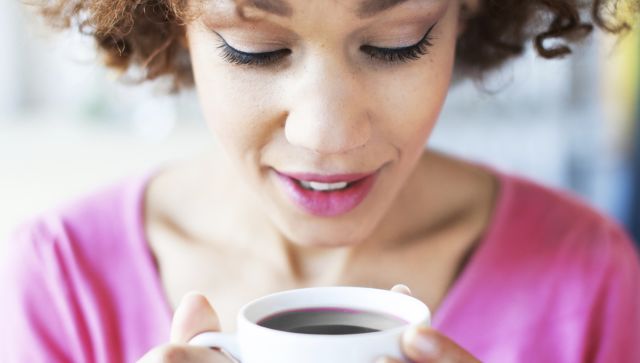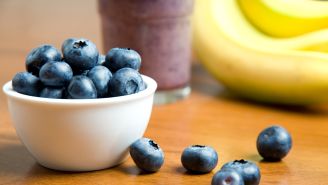One of the best ways to ward off chronic conditions, including cardiovascular disease, diabetes, and cancer, is to eat a diet rich in antioxidants. Fruit and vegetables are excellent sources of antioxidants, but many of us don't eat as much of these powerhouse foods as we should (aim for five servings of veggies and four servings of fruit every day).
So guess where else you can top up on antioxidants? Yep. Coffee. In fact, it is the top dietary source of antioxidants for many people around the world, including in the United States. Moreover, roasted coffee residues retain their antioxidant ability; it isn't lost in processing.
And there may be related health benefits. Studies show that drinking coffee may:
- Reduce the risk of Parkinson's and Alzheimer's: One study revealed a 40% reduction in risk in men who drank as little as one cup per day. This protective effect, however, was not observed in postmenopausal women who take estrogen. In fact, coffee may actually increase Parkinson's risk for women in this group. In another study, middle-aged coffee drinkers were 65% less likely than their non-coffee-drinking peers to develop dementia or Alzheimer's later in life.
- Lower the risk of certain cancers: Studies suggest that a couple of cups of coffee a day may cut the risk of liver, mouth, and throat cancers.
- Boost liver health: Coffee appears to help the liver stay on top of its many functions -- including detoxifying your body -- and may also protect against cirrhosis.
- Protect against stroke: Results from a long-term study found that women who drank 2–3 cups of coffee a day were nearly 20% less likely to have a stroke compared with those who drank just 1 cup a month.
It's not entirely clear what's responsible for the health benefits of coffee consumption. Coffee contains antioxidants, but it also contains caffeine and other compounds.
Caffeine may not be recommended for people who have:
- Overactive bladder
- Heartburn
- High blood pressure
- Arrhythmia
- Anxiety disorder
- Insomnia
Coffee Caveats
Even with all the pros associated with coffee, there are also some cons to consider. Although coffee consumption does not seem to raise the risk of cardiovascular disease, research shows that chronic consumption may increase aortic stiffness. Plus, unfiltered coffee can raise levels of blood fats, and excessive caffeine intake may be bad for people who are sensitive to caffeine. Coffee can contain anywhere from 72 to 130 milligrams (mg) of caffeine per 8-ounce serving, depending on the bean source and the brewing method.
So if you don't already drink coffee, there isn't necessarily a reason to pick up the habit for your health. And for people who already drink it, coffee is no substitute for veggies and fruit. Finally, because of the caffeine content, moderation is still the key to enjoying coffee healthfully. Try to limit yourself to about one or two small cups -- about 8-ounces -- daily. That way, you stay within the recommended limit of no more than 250 mg of caffeine a day.
Tea Time
Not a coffee drinker? There's another steamy brew with multiple health benefits: tea. Tea's healthy credentials are widely established and are likely due to its antioxidants.
Health benefits of tea include:
- Reduced risk of heart attack and stroke
- Reduced risk of Parkinson's and Alzheimer's disease
- Lower risk of some cancers (prostate, ovarian, liver)
What about the caffeine? Tea contains less caffeine than coffee, so you can drink more without worrying about excessive caffeine intake. Green tea contains anywhere from 9 to 50 mg per 8-ounce serving, while black tea typically contains between 42 to 72 mg per cup.






